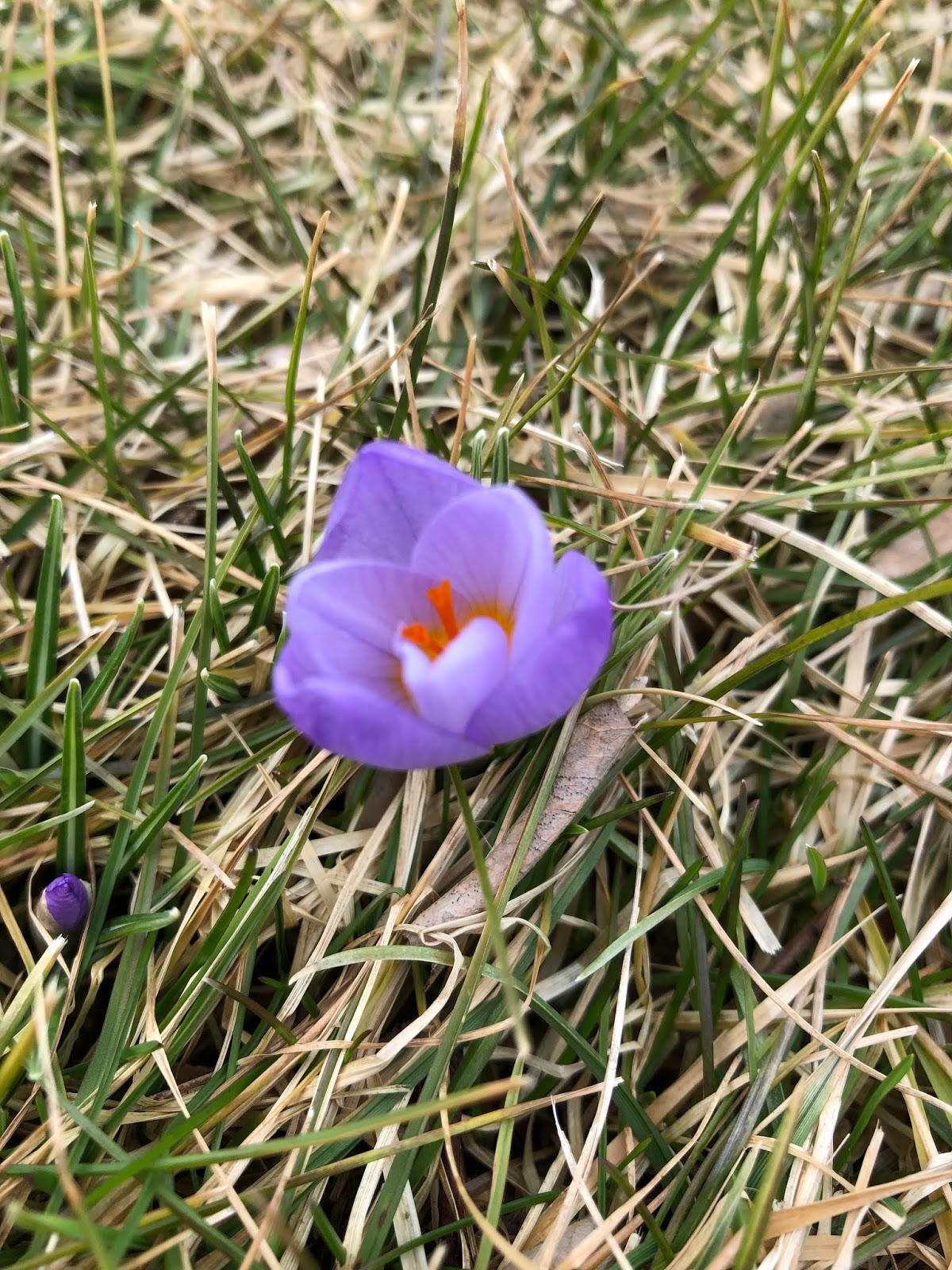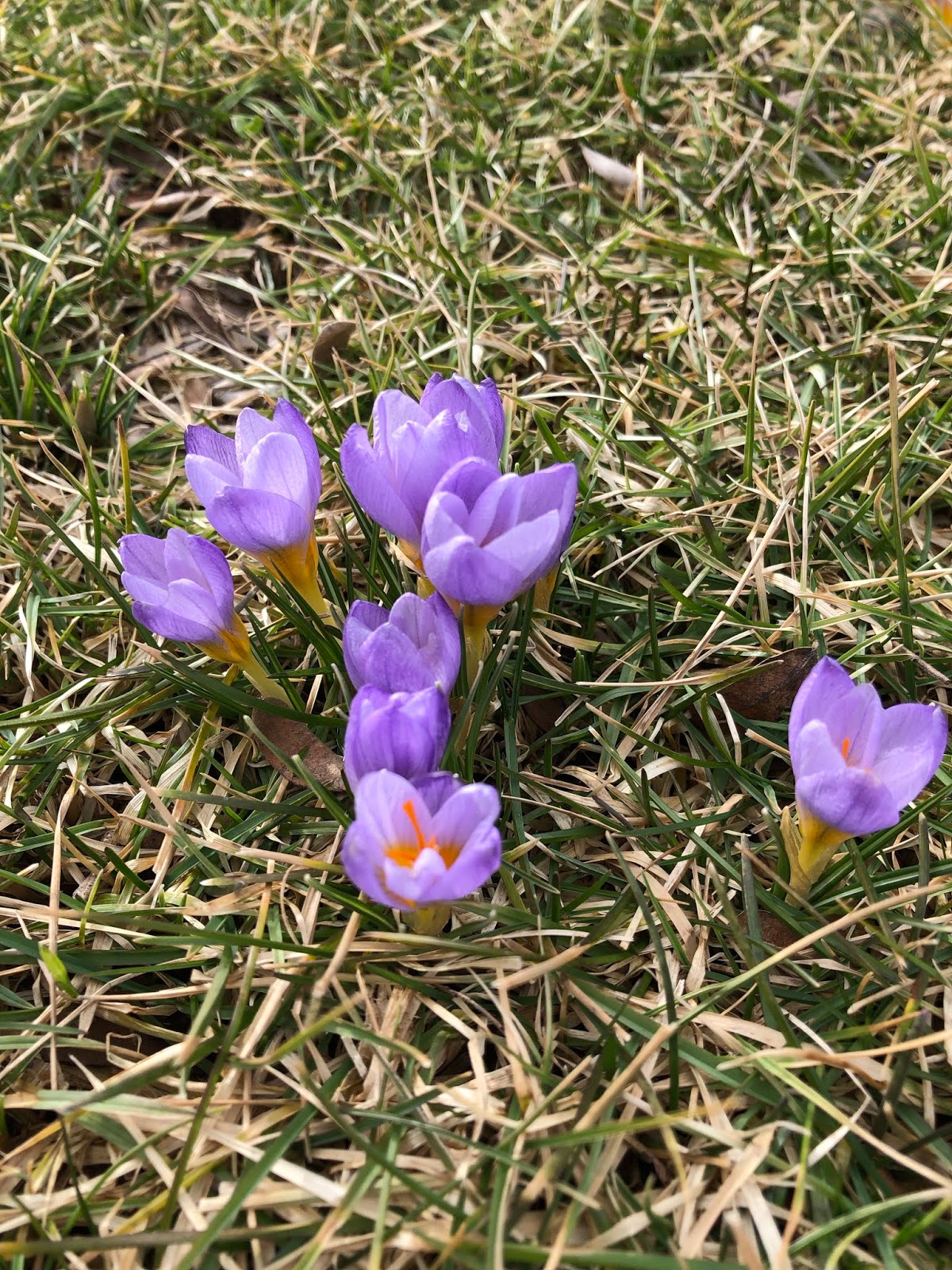
Whenever I see the first crocuses blooming in the lawn in late winter, I exhale in relief.
I can relax now.
I can relax knowing the squirrels or chipmunks or voles or whatever did not eat all these corms before the flowers came up. I’m sure they ate some of them, but I still can plant more than they can possibly eat in one winter.
I can relax knowing that some of the crocuses are coming up from previous years’ plantings. At least I think I know they are from previous years because I see groups of flowers blooming closer together than I generally plant them. This implies, to me, that they are returning and, more importantly, multiplying from year to year.
I can relax knowing that winter, even if it is still technically present, is at least slipping a little, losing its foothold on the landscape, and preparing for its annual exit.
I will make it a daily ritual now to go out and see what new crocuses have shown up in the lawn. And they will show up now that the first ones have popped up. There will be more every day for the next several weeks. Hundreds of them. Maybe at this point, after planting more every fall for the last seven or eight years, thousands of them.
Soon I’ll see the first bees, especially on that first day when the sun is shining and you can feel its warmth as you walk around. Those bees feel that warmth too as they hungrily fly from flower to flower, eager to get to that pollen. I imagine they gain strength with each new flower they visit.
When people ask me if they can grow crocuses in their lawns I tell them, “Yes, you can.” But there are a few caveats to that yes.
Of course, you must live in a climate that allows a suitable cold period for the crocuses. We call it winter. They need that cold period to flower. (Sorry, friends in southern California, probably parts of Texas, too. Oh, and definitely not Florida or Louisiana.)
You can not apply herbicides to your lawn because you’ll kill all the crocuses.
Because you will no longer be using herbicides on your lawn, you will notice an increase in other lawn flowers. Bright yellow dandelions. White clover tinged in pink. Perhaps, if you are lucky, violets. But that’s okay. It’s a good trade-off in my opinion. Plus, bees like those lawn flowers even if your neighbors don’t. And in case you hadn’t noticed, dandelions won’t bloom all summer. I’ve found that after a few weeks of mowing in the spring, the dandelions kind of quiet down and are pretty much invisible the rest of the growing season.
Oh, and forget watering your lawn in high summer to the point where it is wet and saturated all the time. Crocuses don’t like those kinds of conditions. They will simply rot under those conditions. Your lawn will be fine if it goes a bit dormant in the heat of summer. It will come back by early fall once it cools down. I suggest you put the money you save from not watering your lawn toward purchasing crocus corms.

One last word of advice. Order the crocus corms early, as soon as they start selling them. Before you think through how you will plant all those corms once they arrive, order them and forget about them. They will ship them to you in the fall. Then you can worry about how to plant all of them. But that’s a worry for another day. Don’t borrow that trouble now.
Now is the time to enjoy the flowers!


Thank goodness for crocus and other early bloomers. They give us hope.~~Dee
Good advice! Also, don't mow the leaves off too soon. Wait until they start turning brown.
Although all my bulbs are under snow right now, this reminds me it won’t be all that much longer before I will see bulbs flowering in my own yard.
Every time I see my first crocus or snowdrop, I make a note to my self..order more bulbs. I love them
Love Crocuses. I've stopped planting them, though, because I've gotten tired of having my heart broken by marauding squirrels and rabbits.